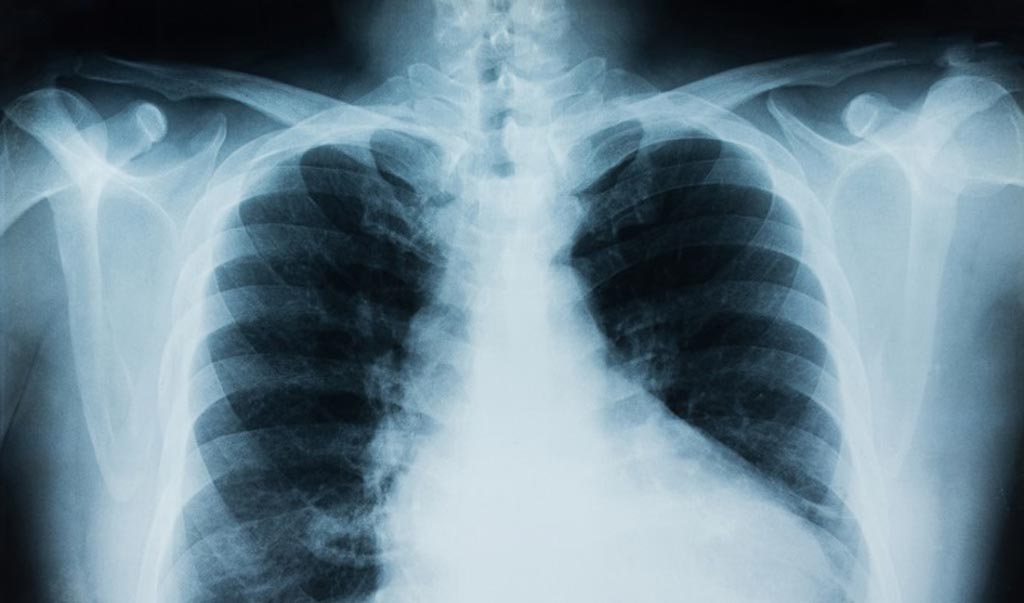Teleradiologists Highly Accurate at Diagnosing COVID-19 on Chest CTs
By MedImaging International staff writers
Posted on 18 Nov 2020
A new study by a group of French radiologists has found that teleradiologists can be highly accurate in diagnosing COVID-19 from chest computed tomography (CT) scans and their performance can be on par with senior radiologists.Posted on 18 Nov 2020
Real-time reverse transcription polymerase chain reaction (RT-PCR) has emerged as the gold standard for the qualitative detection of nucleic acid from SARS-CoV-2 in upper and lower respiratory specimens, with a nasopharyngeal swab being the preferred method for sample collection. However, recent studies have shown possible inaccurate RT-PCR results (false negatives and false positives) with regard to detection of COVID-19 due to inadequate sampling techniques, variations in viral load, and test kit sensitivity. Chest CT has been suggested as a potential complementary approach alongside RT-PCR in the context of the current outbreak. Chest CT may provide crucial information regarding the extent and complications of COVID-19, or its differential diagnoses, within short time periods, without the need to wait for the results of RT-PCR. Outsourced teleradiology is now widely implemented, but opinions differ regarding this practice. While teleradiological outsourcing enable to provide radiology services in a variety of local settings, studies often point out the quality of reports and insufficient communication with clinicians.

Illustration
In the new study, the researchers aimed to prospectively assess the diagnostic accuracy of chest CT for COVID-19 and determine the inter-observer agreement between radiologists in patients suspected to have the virus from 15 French emergency departments operating an outsourced emergency teleradiological system during the COVID-19 outbreak in France. 513 chest CT scans were interpreted at a first reading by 101 radiologists from the panel of the 151 teleradiologists available during on-call periods. Among them, 69/101 (68.3%) were senior and 32/101 (31.7 %) were junior radiologists. The study found that inter-observer agreement was excellent between on-call radiologists with varying degrees of experience and senior radiologists. The ability to categorize chest CT scans from various hospitals was strongly reproducible between the emergency setting and the later second reading. This indicator was higher than previously reported in recent investigations.
Based on this multi-centric population of suspected COVID-19 in an emergency setting, radiologist scoring was shown to strongly correlate with RT-PCR status. Hence, the researchers suggest that it may have been useful to perform initial CT screening while waiting for RT-PCR results, before hospitalization. Chest CT could be useful to reclassify false-negative RT-PCR cases in patients with a high clinical suspicion of COVID-19. The researchers concluded that the results illustrate the high diagnostic accuracy in diagnosing COVID-19 of teleradiologists with various degrees of experience, in settings with different levels of prevalence, as well as excellent inter-observer agreement for chest CT. Thus, this kind of structured outsourced teleradiology model could bring high-quality structured and standardized reports with report turn-around time meeting the requirements of emergency medicine during the pandemic.














